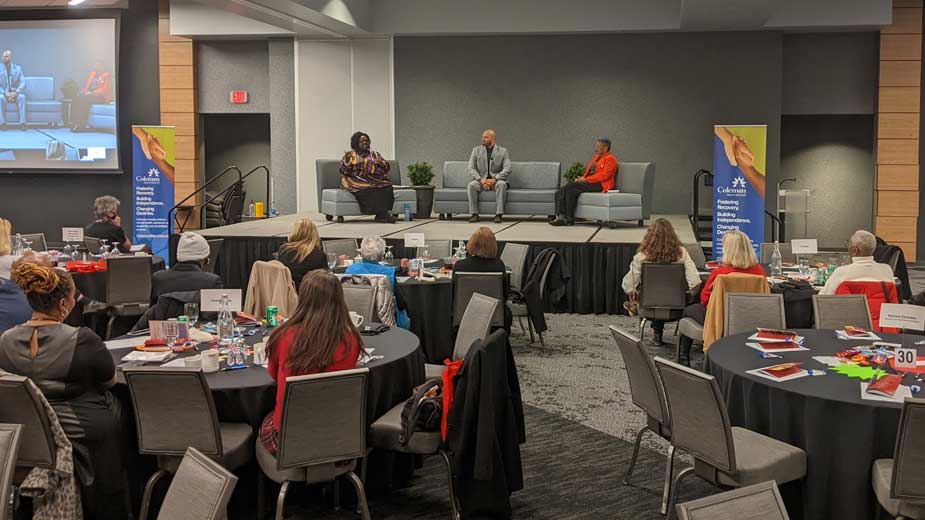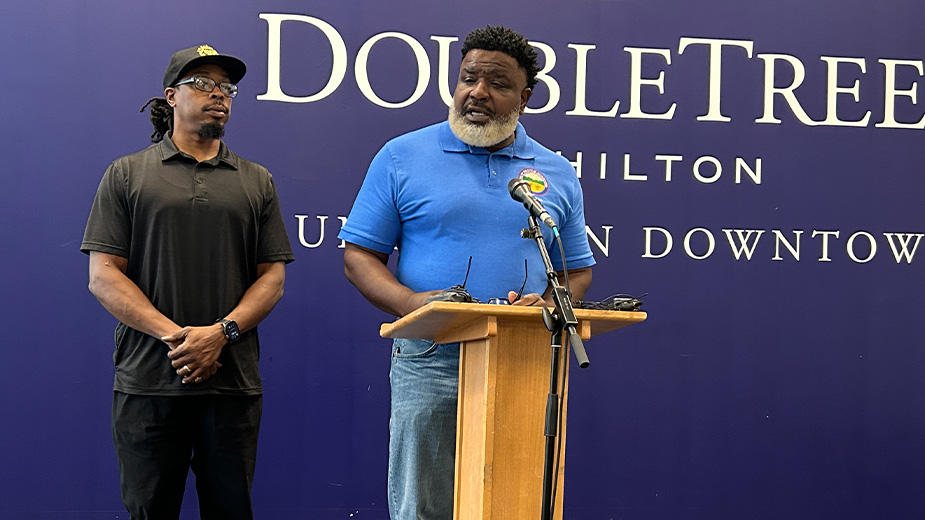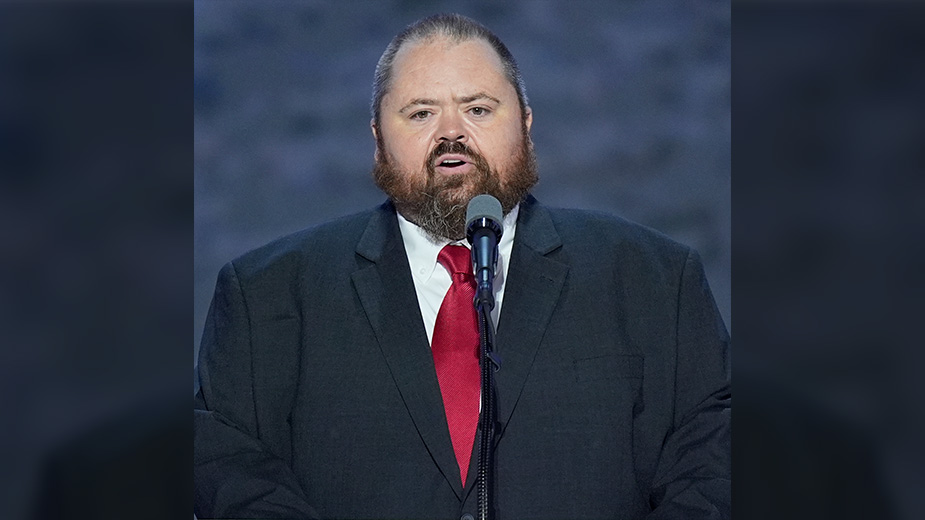Symposium ‘Unmutes’ Uncomfortable Conversations about Racial Justice
NILES, Ohio – Justice reform advocate Kevin Richardson was one of five youths arrested when he was 14 years old for a sexual assault in New York City that he did not commit.
After spending a decade in prison and probation, he finally was released and had his conviction overturned in 2002. Richardson, who is now 47, helps those wrongly convicted like him seek justice.
He spoke Friday to about 100 professionals from a broad spectrum gathered for Unmute the Uncomfortable – a professional development symposium on racial justice, mental health awareness and suicide prevention held at the Eastwood Event Centre. The event was organized by Coleman Health Services and the Trumbull County Mental Health and Recovery Board.
“I think we need to know everything about it and live more together,” Richardson said of the topics covered at the event. “I like the title Unmute the Uncomfortable. We have to put people in the position to make them feel uncomfortable about it so they start listening.”
Event organizer Katie Cretella, director of clinical services at the Trumbull County Mental Health and Recovery Board, says addressing these issues begins with comprehending cultural competence, and fully understanding people from diverse backgrounds – how you can best serve them.
“I think racial justice issues are critical along with mental health and suicide prevention,” she said. “Especially working with the public, we come across so many diverse individuals. [We need to] be able to understand their background, look at them as a whole person and be culturally confident.”
Talking to people, putting one step forward and making it happen is what Richardson hopes to see when it comes to addressing issues such as racism.
“We have to sit down and listen to each other,” he said. “I think we also have to use logic. Sometimes we get overshadowed by the media or things that happen negatively in our community. Sometimes we don’t use logic to listen to each other.
“I think once we do that, perhaps we can start moving on, but it’s an extremely long journey.”
Richardson reminds people that not everyone needs to be an activist.
“You can be active in your own communities,” he said. “Sometimes that starts with having a community meeting and letting other people know how it is to be in my shoes. Society might not know how it is, but they could tap into my world and see how it is. Then, maybe we can help each other out. It’s little steps, one after another.”
Gallery images include justice reform advocate Kevin Richardson, Youngstown Municipal Court Judge Carla Baldwin, Katie Cretella of the Trumbull County Mental Health and Recovery Board, and James DeLucia of the Mahoning County Juvenile Court.
Youngstown Municipal Court Judge Carla J. Baldwin emphasized that individuals are independent, but all are interconnected.
“If we want to positively effect change, we have to work together,” she said. “It’s symposiums and conversations like this that we’ll see that, although we do things very differently, there’s so many common factors and we’re dealing with the same individuals.”
Those who fear coming into her courtroom or even those braving icy road conditions Friday morning, trauma is real for both parties, Baldwin said.
“It takes them a minute to get warm, comfortable and let that anxiety go,” she said. “Now think about people who have to walk into courtrooms or medical centers and don’t know what’s going to happen to their life.
“I want to give them some tips and tools they can employ in their respective entities to make life just a little bit easier and make the process better again for our system users.”
To understanding the past and how it impacts today’s events, Mahoning County Juvenile Justice Center Clinical Director James DeLuca said we have to change the narrative and future with individual’s views, including some of those who might be different from ours.
He hopes people “further understand the disparities that continue to exist day-to-day in our lives, in our community and understand the difference that we can make regardless of titles, socioeconomics,” he said. “We all can all make a difference in the lives of not only our children, but also the adults within our community.”
Change in the community comes from those in leadership positions not avoiding awkward and terrible situations for individuals, Baldwin said. Those in power need to ponder the situations.
“What can I do to make sure every system I employ under my control does not have a negative impact on any portion of the population?” she asked. “If I ask those questions and work to get those answers, then my system will be better and hopefully it is contagious.”
Meanwhile, those suffering from mental illness and receiving treatment fight not only their personal issues, but society’s stigmas.
“We would never shame somebody who is diabetic for receiving insulin,” Cretella said. “Why do we shame people who have a mental health diagnosis or are experiencing mental health symptoms? Why do we shame them for receiving the treatment that they need?”
For those coming back into society from being incarcerated, it is important for employers to give opportunities to those seeking a second chance in society.
“When you have idle time, that’s when things happen,” Richardson said. “It’s about giving someone a chance. A lot of people that come out of prison, they have a lot of experience. Because of their record, sadly to say because of the color of their skin, it doesn’t work.
“It’s about giving someone a chance and you’ll be surprised they’re very talented and smart.”
Pictured at top: Unmute the Uncomfortable professional development symposium focused on racial justice, mental health awareness and suicide prevention.
Copyright 2024 The Business Journal, Youngstown, Ohio.







